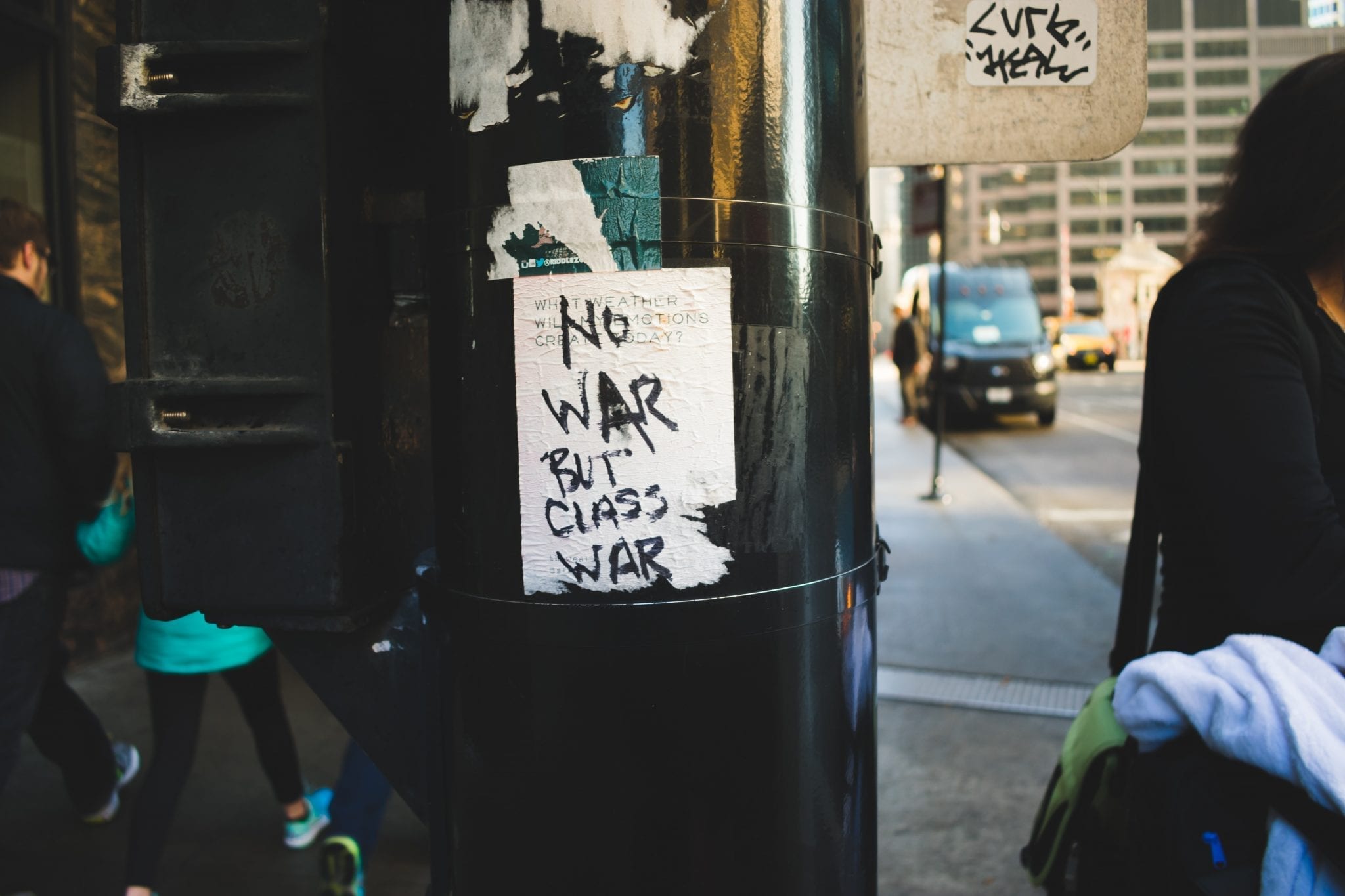Debtors’ prisons, tent cities evicted at gunpoint, while CEOs make 140x the median wage: we’re criminalizing the poor as we create them. Where will they go?
In 2008, German design student Fabian Brunsing created a piece called Pay & Sit. It’s an art installation in the shape of a park bench with sharp metal spikes that prevent people from sitting until they deposit €0.50 (about 70 cents) in the coin slot. It’s a (literally) pointed political statement, but that didn’t stop Facebook users from taking images of the bench out of context and presenting it as one more stop along the road to criminalizing the poor. At the time of this writing, one such Facebook post was shared 77,547 times and received more than 7,400 comments.
While the misinterpretation of the Brunsing installation contributes to the overall deluge of fake news on a website that generates revenue by generating outrage, it’s easy to understand why people jump so quickly to that conclusion. Real spikes and other “hostile architecture” (such as mid-bench arm rests, sprinklers, and unnecessary bike racks installed where tent camps are evicted) meant to deter homeless people are becoming more common “features” of city life.
PAY & SIT: the private bench, an art installation by Fabian Brunsing.
In Chicago last September, the city evicted residents from a tent city that formed under viaducts on public land. Ostensibly, the homeless were ousted so bike paths could be constructed. With the project slated for completion in April of this year, people unable to take shelter there are facing rough living through a famously brutal Chicago winter. Another encampment of about 10 tents, located across from a vacant school building, was also raided. There’s a special irony in criminalizing the poor here, as there had been a proposal to repurpose the closed school building into affordable housing. The city decided instead to sell the building to a developer, Morning Side Equities Group, which is planning to turn it into luxury apartments and commercial space in a neighborhood where people who have nowhere to go are forced at gunpoint to go somewhere else.
The police are coming for those slightly higher on the income scale, too. Late last year, Attorney General Jeff Sessions rolled back Obama-era efforts to end debtors’ prisons. The need for these efforts came to light when a Justice Department investigation turned up shocking levels of corruption in Ferguson, MO, after a police officer there killed Michael Brown. City officials had been milking Ferguson’s poorest residents as a perverse profit center, issuing outrageous $300 penalties for jaywalking and over $500 for having an unkempt front yard. If they couldn’t pay, warrants were issued for their arrest, and of course new fees and charges added. If criminalizing the poor is the only way that cities can make enough money to stay solvent, then Sessions’ actions undermine civil rights while highlighting the lack of a future for many Americans.
We live in a country that is growing more unequal by the day. While the state destroys homeless encampments, it sells off the commons for luxury housing. We’re growing for-profit prisons and justice systems that eat the poor alive even as CEOs make 140 times what a “typical” worker makes – and the main worry those companies have about reporting that statistic is a loss of morale. Morale, indeed!
Criminalizing the poor even as we impoverish them to line the pockets of our wealthiest citizens is the action of a kleptocratic oligarchy. However, any political effort to fix the system is deemed Socialism (or even that red-scare word, Communism). No wonder the concept is gaining popularity among younger people who have less to lose and far more to gain than the older pundits and politicians seeking to frighten us with tales of Mao and Stalin.
Something has to give. Either we adapt to our declining resource base and slowly collapsing civilization by adopting a new social contract that prioritizes basic wellbeing, even if that means most of us have to tighten our belts a bit, or our increasingly out-of-touch betters will have to figure out a place to house a growing number of displaced middle class and desperate poor. Perhaps if they fail at the latter, enough people working and voting together can make the former option a reality.
Related: Prisoners for Profit: Not a Free Market
Sources:
U.S. CEOs Earn 140 Times More Than the Typical Worker
‘Anti-homeless’ benches, sprinklers and bike racks latest in ‘hostile architecture’
Housing is a right: defend Uptown Tent City in Chicago
Sessions Says to Courts: Go Ahead, Jail People Because They’re Poor
Socialism with a spine: the only 21st century alternative


Join the conversation!